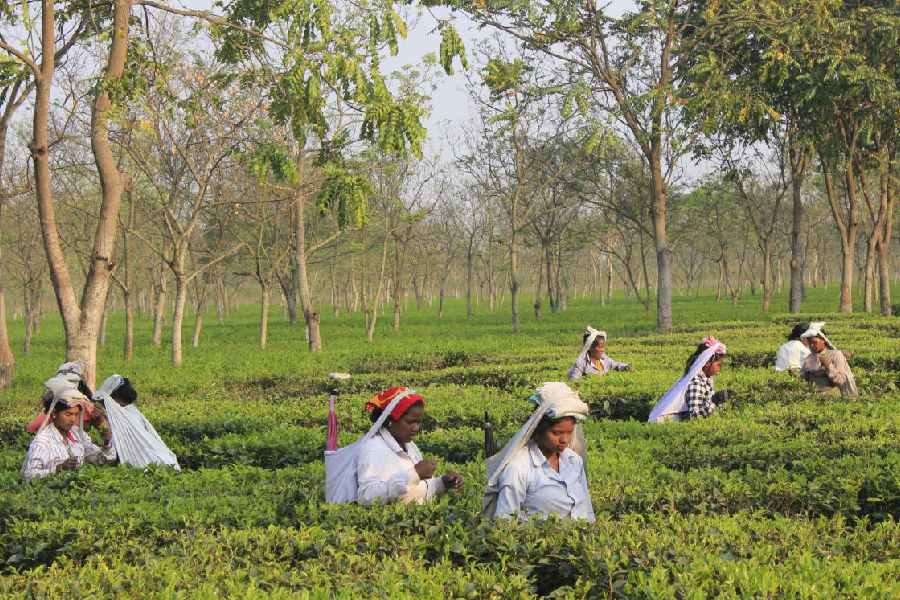The Bengal government on Friday sought to temper the frayed nerves of tea garden owners who are worried over the administration’s decision to provide rights to five decimals of land to workers and long-time settlers on estates, assuring the planters that they would get adequate representation in the decision-making process.
A senior bureaucrat told a host of tea garden managers and owners that there would not be any one-size-fits-all policy when it came to distributing pattas and each estate would be taken up on a case-to-case basis.
“It will be done in partnership (with the management),” Smaraki Mahapatra, secretary of land and land reforms department, said, adding that the government had no "intent of interfering" with tea garden operation.
Mahapatra was responding to the collective concerns raised by Nayantara Palchoudhuri, the chairperson of the Indian Tea Association (ITA), the body of organised large tea producers. In her speech at the open session of the 140th annual general meeting of the ITA here on Friday, Palchoudhuri spoke about the "complications" that could arise from the decision.
In August, the state government notified that rights to plots measuring up to five decimals would be given to people residing in north Bengal tea gardens.
The ITA chairperson suggested that the distribution of plots from the land bank of districts was a possible way to address the issue of "land patta for homesteads".
“Any change in land ownership within the core of plantation grant would invite complications beyond the management’s capacity to handle,” Palchoudhuri said.
Speaking after her, Mahapatra sought to underscore that only "spare" or "unusable" land would be used.
"Tea associations have made their submission and keeping them in mind, the entire scheme has been designed. Certainly, there’s no intent of interfering with any tea garden’s operation because that does not make sense. It is only the unusable or spare land which would be looked at in this policy. I would request all of you to come forward and cooperate,” Mahapatra said.
The Bengal government is the owner of the land cultivated for tea and planters get a 30-year lease which is usually renewed periodically.
Pattas, which would be heritable but not transferable, would be given not only garden workers but also long-term occupiers even though they have nothing to do with the garden.
Mahapatra said the management would be part of the decision-making process in identifying and selecting the beneficiary of the land right.
Industry observers said the administrative decision could reap political dividends for the Trinamul Congress in the Darjeeling hills and the reservations of the handful of planters might not stand.
Tea tourism policy
The government urged the planters to take advantage of the policy which allows spare land (up to 15 per cent of the grant area) of the garden for alternate use. Mahapatra noted that not many people have taken advantage of it so far, reminding that building hotels is not the only option available.










